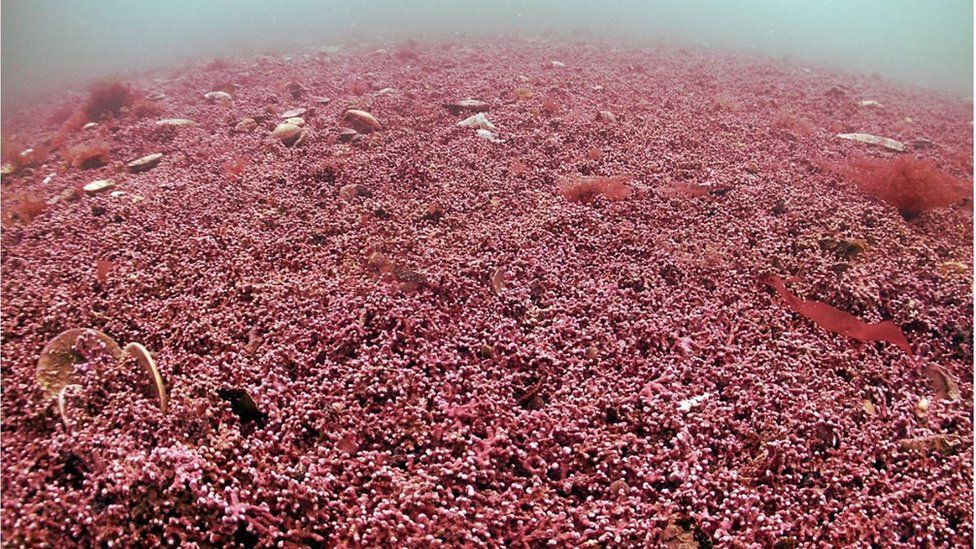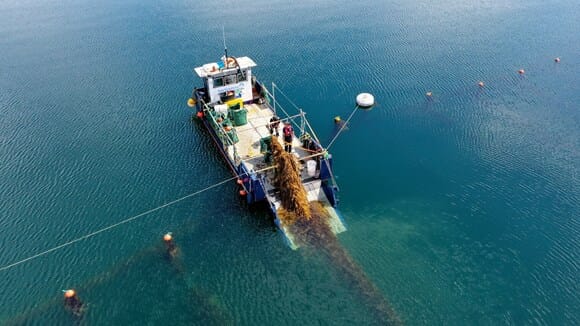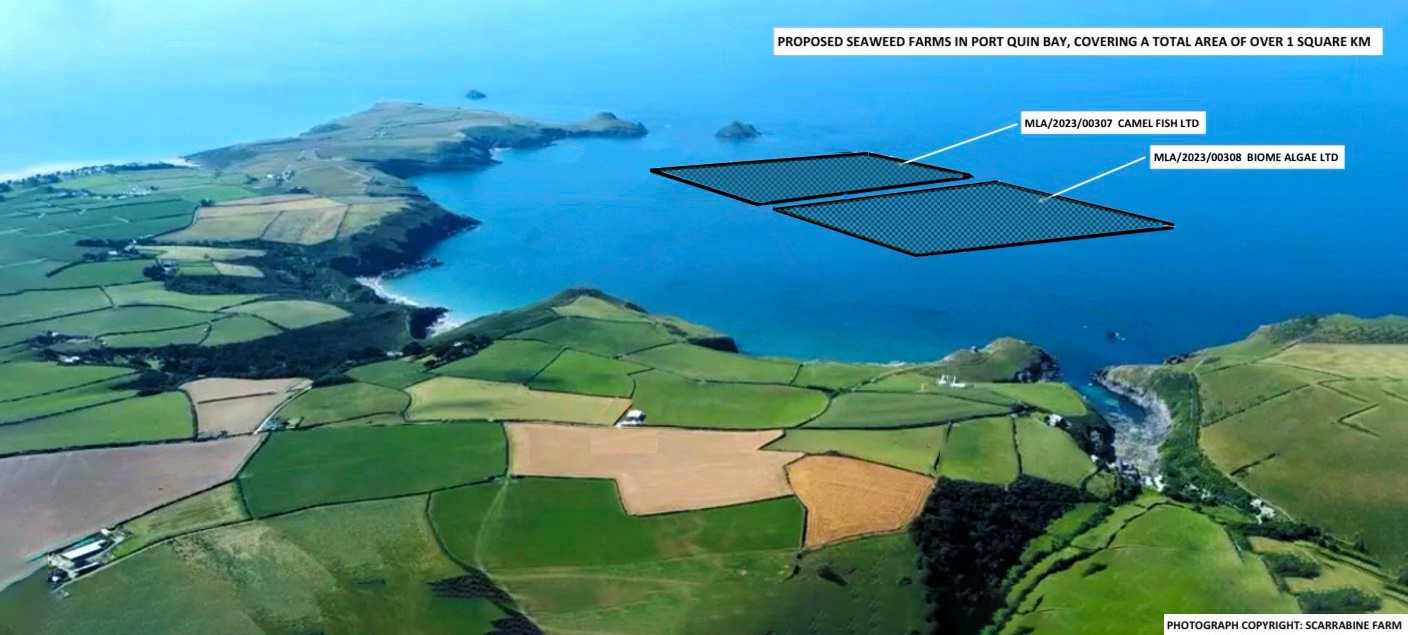
Image Source,Mark Milburn/Atlantic Scubaimage
From BBC by
The council said maerl is a living habitat carpeting the seafloor and is thought to be up to 4,000 years-old
Researchers working on a Cornwall Council project said they have found "one of the biggest amounts of a rare type seaweed ever found in UK waters".
Academics and environmental researchers have been working near Falmouth and Penzance.
Researchers working on a Cornwall Council project said they have found "one of the biggest amounts of a rare type seaweed ever found in UK waters".
Academics and environmental researchers have been working near Falmouth and Penzance.
Localization with the GeoGarage platform (UKHO nautical raster maps)
They found the Fal and Helford Estuary Special Area of Conservation supports a vast area of maerl, a rare and ancient seaweed,
It is equivalent in size to nearly 900 rugby pitches.
It is equivalent in size to nearly 900 rugby pitches.
The council commissioned the University of Exeter and environmental researchers Natural Capital Solutions to study the areas as part of the Blue Natural Capital Project.
Blue carbon is carbon that is captured and stored in marine habitats, and is considered by some scientists to be vital in helping balance climate change.
Local community members are worried about the effects of farm development
on the marine life of Port Quin Bay on the North coast of Cornwall
and area of outstanding natural beauty
'Invaluable research'
Senior Lecturer in Marine Biology at the University of Exeter and research lead, Dr Chris Laing, said maerl had not been considered a "valuable carbon store to date".
"It should be a key player in coastal blue carbon assessments which is an extremely important discovery for Cornwall where the extent of the maerl beds are significant," he said.
Councillor Martyn Alvey, Cornwall Council cabinet member for environment and climate change said he was "astounded" to discover the importance of the seaweed beneath the waves.
"The project shows how these blue carbon habitats can help us in our response to both the climate and ecological emergencies if we properly protect them and allow them to fully recover," he said.
Senior Lecturer in Marine Biology at the University of Exeter and research lead, Dr Chris Laing, said maerl had not been considered a "valuable carbon store to date".
"It should be a key player in coastal blue carbon assessments which is an extremely important discovery for Cornwall where the extent of the maerl beds are significant," he said.
Councillor Martyn Alvey, Cornwall Council cabinet member for environment and climate change said he was "astounded" to discover the importance of the seaweed beneath the waves.
"The project shows how these blue carbon habitats can help us in our response to both the climate and ecological emergencies if we properly protect them and allow them to fully recover," he said.
"We are working with partners to ensure that these vital blue carbon ecosystems are protected from threats such as poor water quality, recreational boating and nutrient loading."
Founder and Director at Natural Capital Solutions, Alison Holt, said building on the blue carbon work research should focus on measuring a range of other benefits provided by the seaweed.
"Understanding how these benefits along with carbon change with habitat restoration is key to setting up blue natural capital markets in the future," she said.
Founder and Director at Natural Capital Solutions, Alison Holt, said building on the blue carbon work research should focus on measuring a range of other benefits provided by the seaweed.
"Understanding how these benefits along with carbon change with habitat restoration is key to setting up blue natural capital markets in the future," she said.
Links :
- Hydro : Enhanced solutions for seagrass monitoring
- BBC : Cornwall seaweed discovery could help tackle climate change / Anger over plans for seaweed farm off Cornwall coast
- Meteored : Special seaweed discovered in Cornwall waters appears to be major carbon store
- The Guardian : Cornwall alarmed by seaweed farm plans close to Padstow coast
- ScienceDirect : Deep-ocean seaweed dumping for carbon sequestration: Questionable, risky, and not the best use of valuable biomass



No comments:
Post a Comment